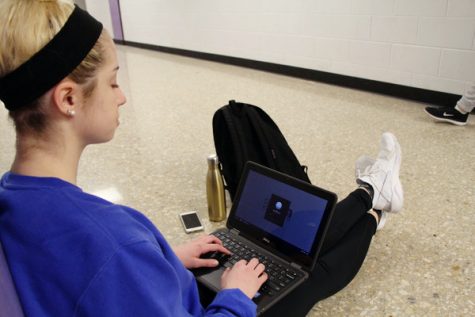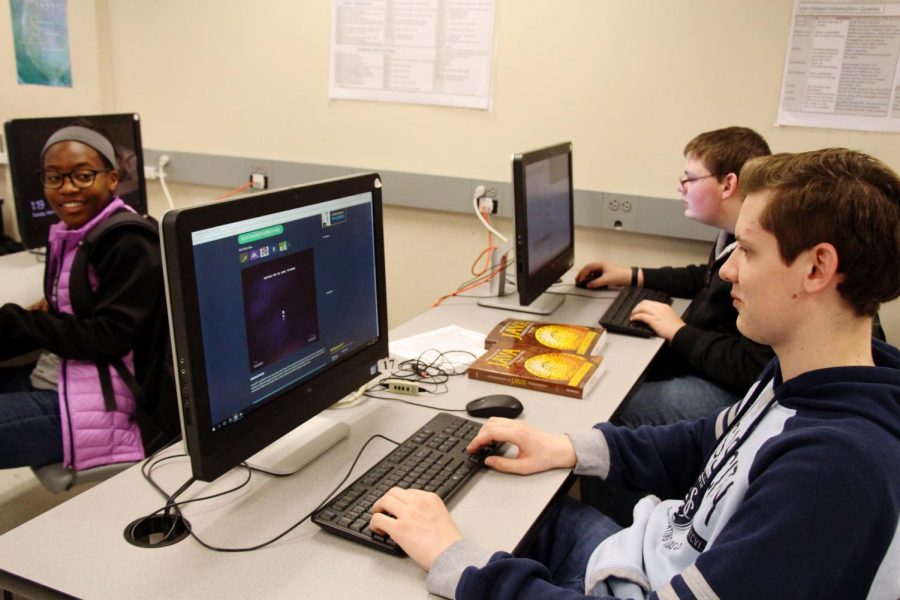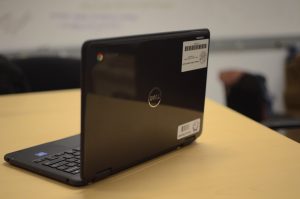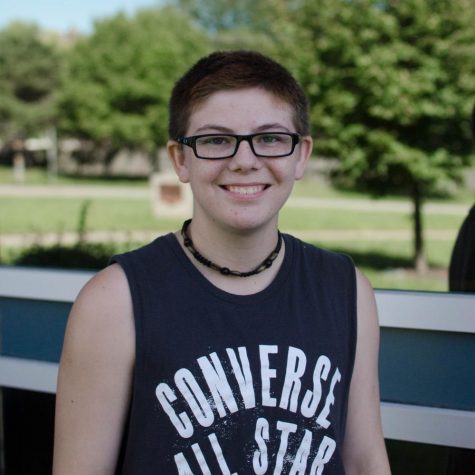New internet filter combats student use of VPNs
Students have found ways to bypass Blue Valley’s Internet safety filters despite the Children’s Internet Protection Act’s obligation for schools to put them in.
Junior Sam Rauter plays Cool Math Games in his sixth hour Computer Programming class after completing his coding.
March 6, 2018
In an effort to combat students’ previous utilization of virtual private networks, or VPNs, Blue Valley Chief Information Officer Brian Daley said Blue Valley implemented a new filter called a content filtering appliance this school year.
While the new filter does block the usage of VPNs, Daley said it also allows more social media usage.
“We thought we were hindering instruction and more innovative and transformative ways that teachers want to teach in the classrooms,” Daley said.
Despite the Children’s Internet Protection Act’s efforts to hinder “obscene and harmful content’” on the Internet from students, sophomore Derrick Zheng said bypassing Blue Valley’s Internet filters are easy and common among students.
To bypass such filters, Zheng said students type an “S” after the “HTTP” in the website browser. Doing this allows Zheng and junior Sam Rauter access to blocked games and websites.
While playing restricted games can result in consequences, Rauter has yet to experience any. However, Rauter said the district can potentially restrict his access on school technology.
“When you are using a school computer you are agreeing to a contract that you will use that computer for specific purposes,” Rauter said. “A breach in the contract could result in you not being allowed to use technology in school.”
According to Daley, the main concern for the district is the safety and security of the students. The district will not look into a student’s search history unless a safety and security issue is brought to them. However, with district owned devices, they can flag certain websites to insure the safety of students using them.
“As we go to more initiatives where students receive devices in the future and go home with devices and we’re filtering students at home, there are flags,” Daley said.

Sophomore Olivia Baxter was given a Chromebook to beta test this year.
BVNW Technology Integration Specialist Nicholas Deffer said if students repeatedly attempt to bypass flagged website, the district will be notified.
“If you go to a website over and over and over and you keep getting blocked and you keep trying to get around the network filter, usually that does put up a flag in our IT building,” Deffer said. “Somebody will usually go back in and look at what was the student doing and what else they were trying to do. They can’t look at the other things that are on your device. It’s really just when they’re trying to get to the site, how many times, that sort of stuff.”
According to Deffer, the district is testing the possibility of using a one-to-one laptop initiative for students throughout the district. At the beginning of second semester, four teachers were allocated a classroom set of Chromebooks for their classes and four individual students were given Chromebooks.
Sophomore Olivia Baxter, one of the recipients of the new Chromebooks the district is testing, said she recognizes the need for restrictions on technology, but thinks they may go too far.
“I think that we really need security just for school reasons or safety reasons,” Baxter said. “But I think it can get a little overboard sometimes when it comes to technology.”
Although Baxter only uses her Chromebook for school purposes, she said she wouldn’t be able to access some of what she can on her personal devices.
“My behavior does change,” Baxter said. “I can’t get on social media and the stuff that I would get on my phone.”
With the potential of more Chromebooks being available for students, Daley said the district is concerned with safety and security of students when using district technology. The district in turn has access to the activity on their devices.
“When you are on a district owned device, you do not own the device nor are you subject to any privacy on that device,” Daley said.








